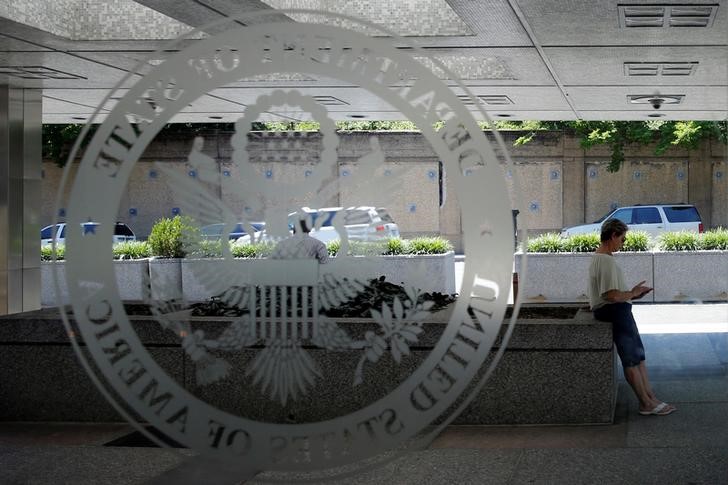By Patricia Zengerle
WASHINGTON (Reuters) - A top U.S. State Department official who deals with Sudan said on Tuesday that Washington was considering all options, including possible sanctions, if there was more violence after a deadly assault on protesters in Khartoum early this month.
"We're looking at all options, including sanctions down the line should there be any kind of repeat of violence," Makila James, deputy assistant secretary for East Africa and the Sudans, told a U.S. House of Representatives hearing.
She said they could include visa sanctions or economic sanctions. "We want to use the right tool and we want to target the right people," James said.
Sudan's ruling generals and an opposition coalition have been wrangling for weeks over what form a transitional government should take after the military deposed and detained long-time president Omar al-Bashir on April 11.
Talks between the two sides collapsed when security forces stormed a protest sit-in on June 3, killing dozens and prompting concern from world powers.
James told the House Foreign Affairs Africa subcommittee that Washington believes the best possible outcome in Sudan is an agreement between the military authorities and the opposition Forces for Freedom and Change, or FFC.
The State Department appointed a veteran diplomat, Donald Booth, as special envoy for Sudan on June 10.
James praised a mediation effort led by Ethiopia and said Washington had made clear "in very strong terms" that a unilateral military government would not be acceptable.
The United States sanctioned Sudan under Bashir over its alleged support for militant groups and the civil war in Darfur.
Trade sanctions were lifted in 2017 but Sudan is still on the U.S. list of state sponsors of terrorism, which prevents it from accessing badly needed funding from international lenders. Washington says Sudan will stay on the list until the military leaves power.
The military council has been bolstered by support from Saudi Arabia and the United Arab Emirates, which between them have offered $3 billion in aid.
James said Saudi Arabia and the UAE had told U.S. officials they want a civilian-led transitional government, because anything else would lead to broader regional instability.
Democratic Representative Karen Bass, the subcommittee's chairwoman, said she and other lawmakers had planned to visit Sudan next week, but canceled the trip because they were told it was not safe.
